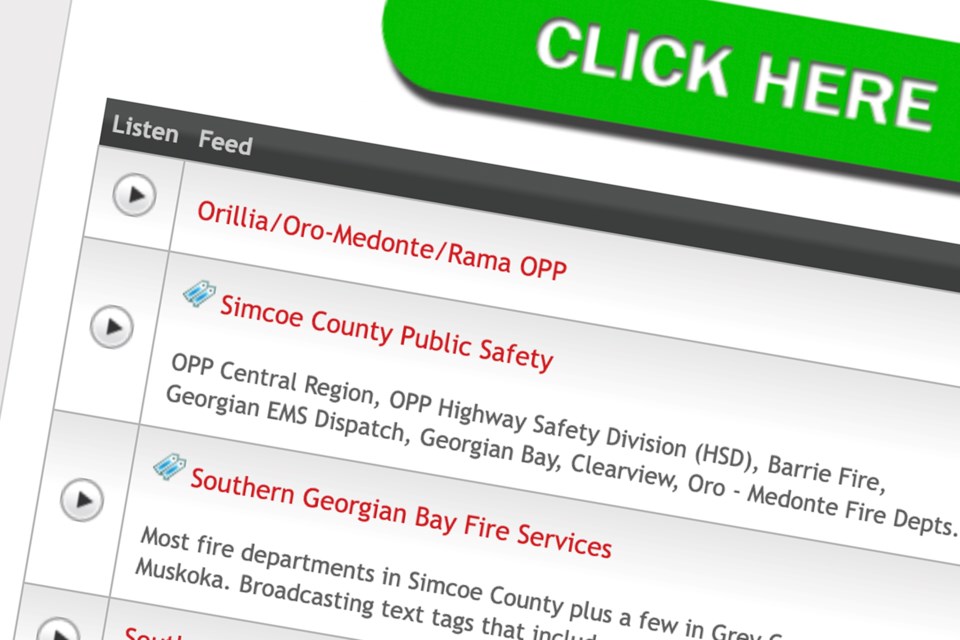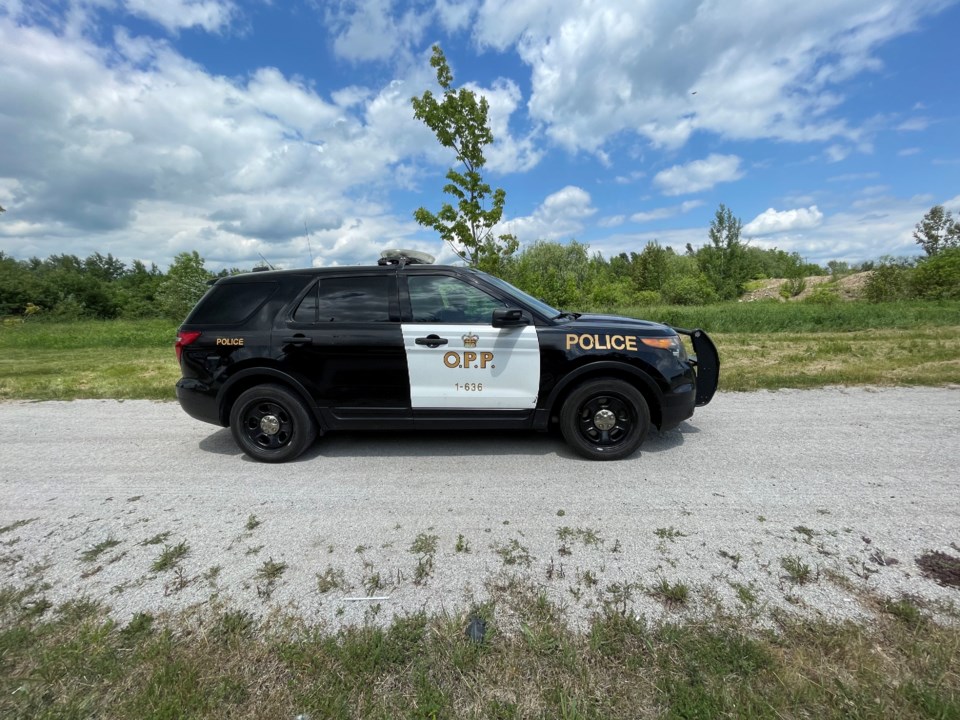Local police departments are in different stages of transitioning their traditional radio communications to an encrypted system, meaning the general public can't listen in anymore.
The Ontario Provincial Police (OPP) is currently doing just that, with the Barrie Police Service having done so in 2022, while the South Simcoe Police Service was one of the first to switch to mute more than a decade ago.
Over the past several decades, just about anyone could eavesdrop on police radio communications. All they had to do was purchase a scanner, a device that can receive numerous radio frequencies to listen to — such as police, fire and ambulance dispatch.
There are even smartphone apps where one can receive all kinds of radio chatter from emergency services across North America.
“The upgrading and encryption of the Barrie Police Service radio system was an operational decision that focuses on officer safety and decreases the possibility that sensitive personal information is aired publicly,” Barrie police communications co-ordinator Peter Leon recently said,
“It also ensures that effective emergency response is not compromised," he added, "and that the safety of our community is not jeopardized.”

There was no public announcement, Leon stated, as Barrie city police's radio system is an internal operational and communication tool, not a public information source.
South Simcoe police, the municipal force in Bradford and Innisfil, digitally encrypted its radio system more than 10 years ago for “reasons of public safety, officer safety and privacy,” according to spokesperson Sue Sgambati.
Meanwhile, the OPP is in the middle of transitioning to a new provincial radio network that will be fully encrypted.
The new radio system, the Public Safety Radio Network, is managed by the Ontario government and will be shared between eight ministries, including the Ministry of Transportation and the Ministry of Health.
The existing system, in place prior to the upgrade, operates four radio zones throughout the province that are managed by the Ministry of the Solicitor General’s Government Mobile Communications Branch.
For each of these zones, there will be two phases of implementation. The first phase is to train personnel in each zone and provide them with upgraded radio equipment capable of encryption.
The second phase is to transition all of the equipment to the new network and the encryption will be enabled at that point. Phase 2 cannot happen before Phase 1.
Each radio zone can be transitioned independently of the others, and they are in different stages of completion.
“For the OPP, this will ultimately provide the ability to maintain officer and public safety by protecting critical details of police investigations as well as safeguarding the public’s personal information,” Acting Staff Sgt. Robert Simpson, with OPP corporate communications, explained.
Encryption will be enabled after all OPP detachments and units within each radio zone have transitioned.
Some critics in Canada and the United States have said they are concerned about encryption, especially news media outlets, which rely on the radio system to stay on top of stories, and are worried their ability to report news is being undermined.
“The OPP is very proactive when providing relevant information to the media using a number of platforms, including social media," Simpson said. "OPP radio communications are logged and recorded, which enables transparency through the Freedom of Information Act."
The Barrie Fire and Emergency Service is also exploring the option to encrypt. A review process is ongoing on the matter.
“Radio communications are the lifeline our fire crews and other emergency responders use to communicate with their teams and dispatch, sometimes under great moments of stress," Deputy Chief Carrie Clark explained in an email. "Being able to use clear, plain language is crucial to the safety of the responders.
“Emergency responder radio communications were designed and are specifically intended for the use of responders only," she added. "Scanners, and scanner streaming services, which allow persons to hear and utilize the communications that are only intended for responders to hear, is contrary to the Radiocommunication Act.”
Clark stated municipalities in Ontario have an obligation to protect personal privacy under the Municipal Freedom of Information and Protection of Privacy Act.
“As a result of the increasing use of scanners and scanning streaming services, many emergency response services have, or are in the process of, reviewing encryption related to the potential to improve operational effectiveness, reduce risk to responders from individuals who may seek to do them harm, and ensure that personal privacy of individuals involved in a situation is maintained,” she said.
Canada’s Radiocommunication Act makes unauthorized decoding of encrypted communications punishable, with fines of up to $75,000 and a maximum prison sentence of one year.
